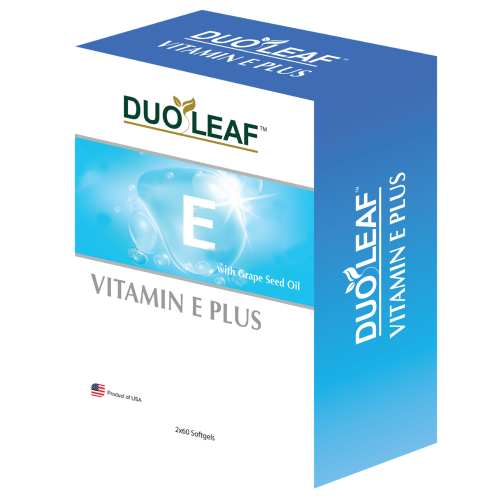RSP: Rm109
PACK SIZE: (2x60s)
INGREDIENTS:
Vitamin E (Delta-Alpha tocopheryl acetate) – 400IU
Grape Seed Oil (Semen Vitis Vinifera) – 50mg
Source of Gelatin: Bovine
Dosage: Take 1 softgel twice daily. After meals.
Manufactured in USA.
Registration No: MAL23126134NCR

Duoleaf Vitamin E plus is a supplement formulated to provide a combination of grape seed oil (Semen Vitis Vinifera) and delta-alpha tocopheryl acetate (vitamin E).
References:
References: